Overcome These 5 Struggles that New Swimmers Face
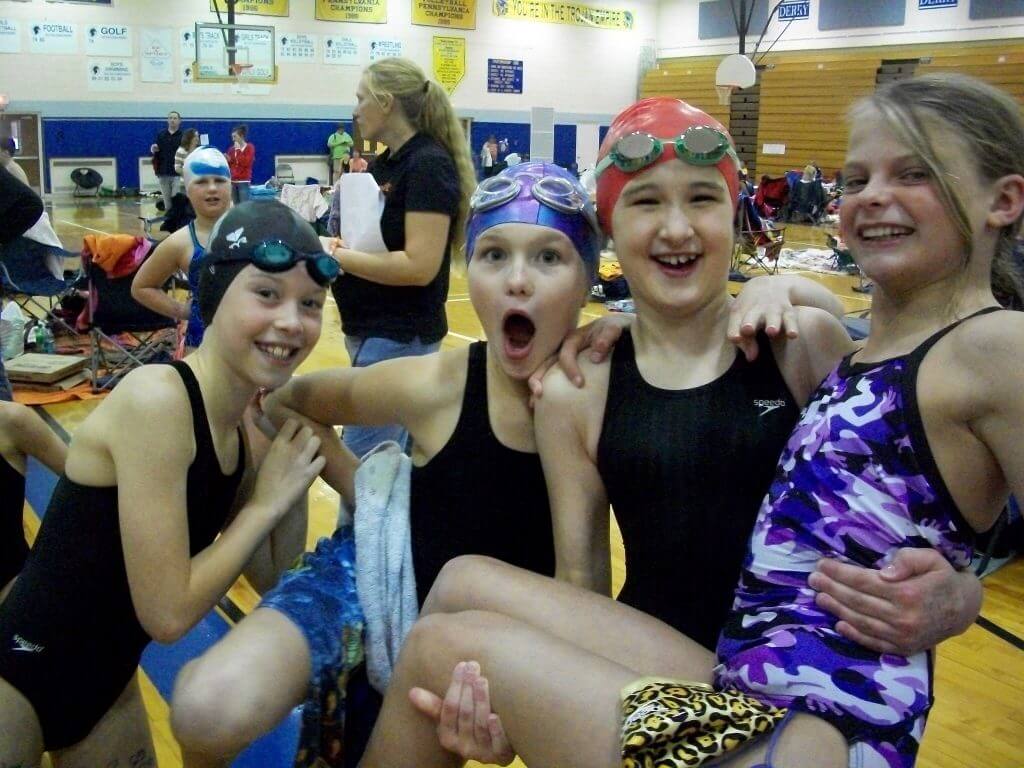
By Sarah Noll, Swimming World Magazine College Intern.
You finally built up the courage to join your local swim team. Maybe you have some friends who have been on the team, so you are excited to see them more often. You arrive on deck and immediately panic, asking yourself, “Why are all the guys in speedos?” You hop in the pool, and the coach says, “Ok guys. Let’s do a 400 every fourth length drill.” Your head starts spinning. You don’t even know what a 400 is.
This scenario is all too familiar for many young swimmers, and it is easy to get discouraged when you feel like an outsider. Swimmers have their own language and unspoken rules, so it can be hard to break into the swing of things. Let’s dive into five of the most common struggles for new swimmers and how to overcome them.
1. Do I Have to Wear Goggles?
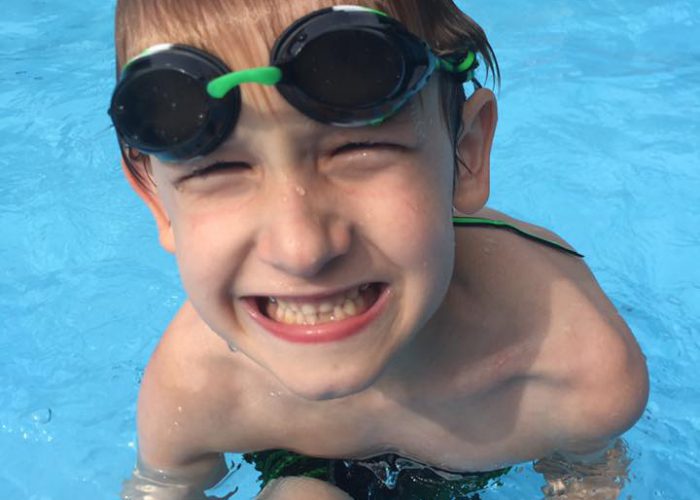
Photo Courtesy: Sarah Noll
“They hurt my eyes! They hurt my head! I can just open my eyes underwater!” These are common declarations from the new swimmer. Take it from an experienced swimmer: Goggles are your friend, not your enemy. New swimmers often learned to swim without wearing goggles, so they hop into their first practice expecting to be fine. However, after an hour of running into the lane line, whacking other swimmers and running into the wall, you will soon realize that it is time to invest in a quality pair. There are tons of different brands and styles out there, so the options are limitless! Goggles are all also adjustable, so you can make them loose enough to stop the headaches.
2. Comparing Yourself to Others

Photo Courtesy: Swimming World Magazine
Some people on the team swim year round. Others only swim in the summer. And some only swim on Wednesdays. Even if they are the same age or maybe younger than you, they might have more experience and be faster than you. Don’t worry! Try to find the more experienced swimmers and ask them how you can improve your technique. Try to copy them. And most importantly, keep trying your best. It takes time to become better at something, and swimming is no exception.
3. Do I Talk to my Coach?
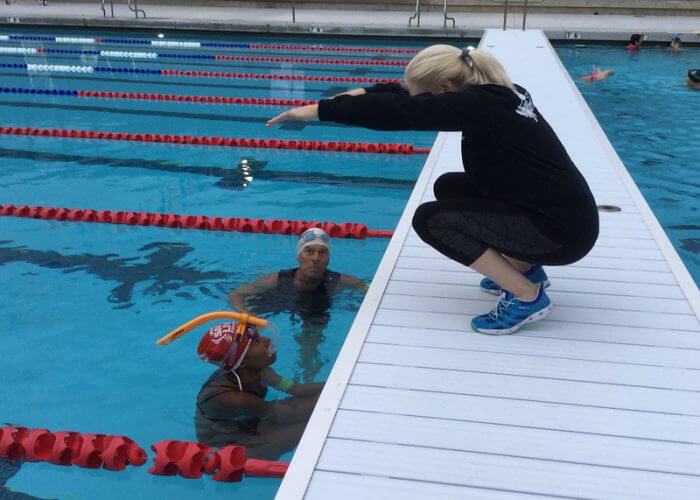
Photo Courtesy: Cokie Lepinski Photography
Swim coaches are a special breed. Most are former swimmers themselves, so they know what you are going through. They also have a lot of experience and stories to share. Your coach wants to help make you a better swimmer, and asking them for help shows them you want to be a better swimmer too. After a race, find your coach and ask them what they thought about your race. Feedback will help you get better and better.
4. Don’t be Thirsty… Bring a Water Bottle
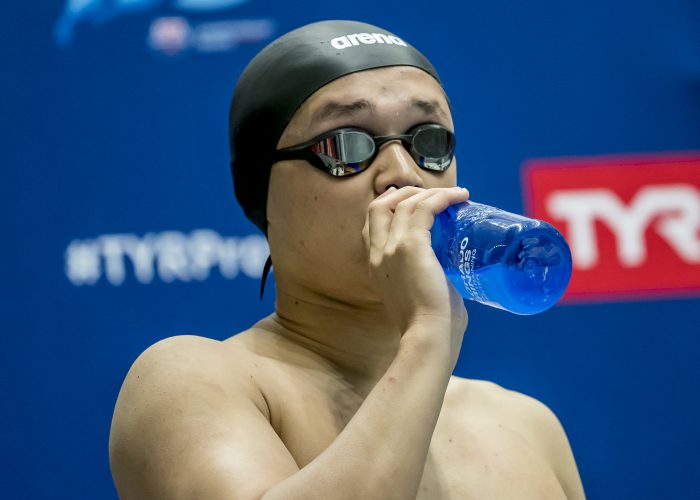
Photo Courtesy: Peter H. Bick
Physical exercise makes you sweat. When you overheat, your body wants to cool itself down. Swimming is no exception; however, most swimmers don’t often know how much they are sweating because they are surrounded by water. This can be dangerous and lead to serious physical consequences. Dehydration is no joke. Previous Swimming World intern Joseph Buchanan writes, “With a lack of hydration, swimmers can experience early onset fatigue during workouts, poorer response times, an increase in the risk of injuries, and sharp rise in the risk of cramping both inside and outside the pool. Dehydration of any degree can negatively affect a swimmer’s performance in the water.”
For a more in-depth explanation of dehydration in swimming, check out Buchanan’s article: Hydration for Swimmers.
5. Just Keep Swimming
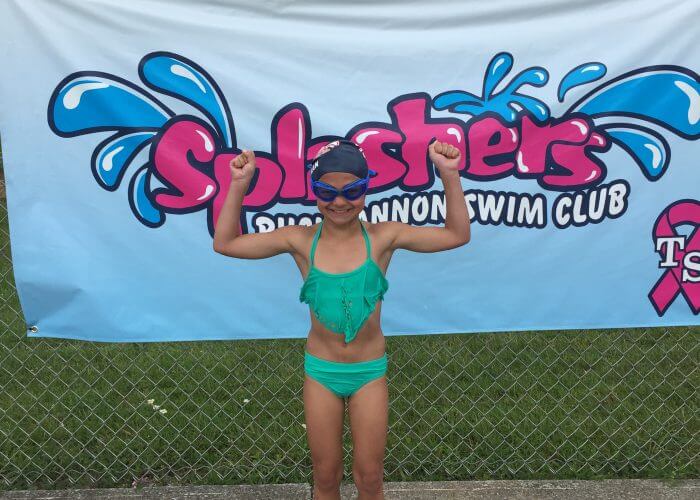
Photo Courtesy: Sarah Noll
Swim practice is hard. Nobody will tell you otherwise. The only way to get better is to keep practicing and keep an open mind. Learn something from every race to help you improve the next time. The strange language your coaches and other swimmers use will eventually make sense, and you will see concrete improvements moving forward. Take the advice of Dory, the beloved character from Finding Nemo: Just keep swimming, and pretty soon you will be leading the lane.
Even though it can be overwhelming, swimming is a highly rewarding sport. Comment below if any other struggles are missing from the list!
-All commentary is the opinion of the author and does not necessarily reflect the opinion of Swimming World Magazine or its staff.



